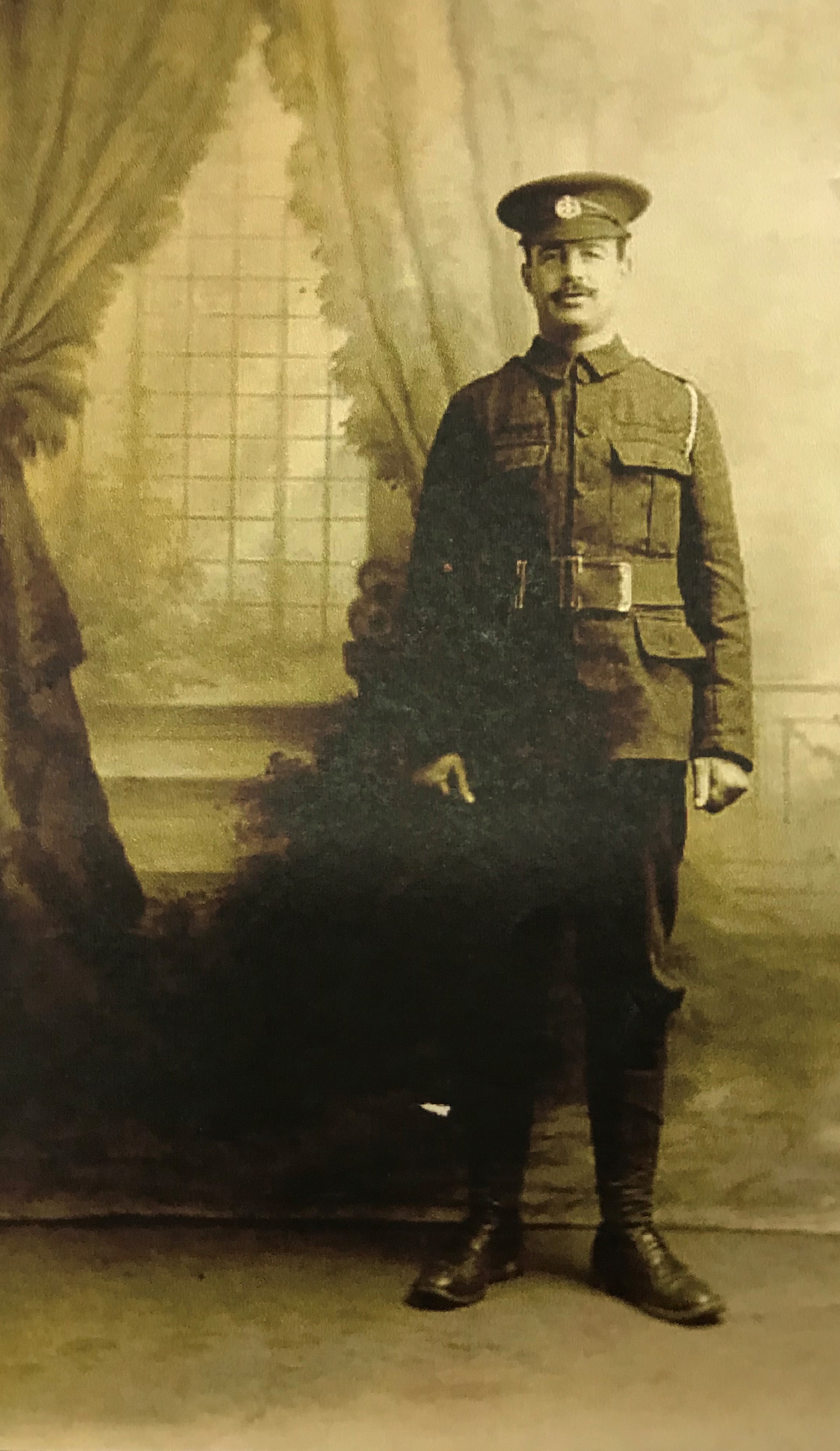Rfn
John Rogerson
Informationen zu Geburt
|
Geburtsjahr: 1879 |
|
Geburtsort: Hulme, Lancashire, England, Vereinigtes Königreich |
Allgemeine Informationen
|
Beruf: Verkäufer |
Informationen zum Armeedienst
|
Land: England, Vereinigtes Königreich |
|
Truppe: British Expeditionary Force |
|
Rang: Rifleman |
|
Dienstnummer: Z/2414 |
|
Einberufung datum: 01/09/1914 |
|
Einberufung ort: Manchester, Lancashire, England, Vereinigtes Königreich |
|
Einheiten: — The Rifle Brigade, 11th Bn. (Letzte bekannte Einheit) |
Informationen zu Tod
|
Sterbedatum: 27/09/1917 |
|
Sterbeort: Cement House, Belgien |
|
Todesursache: Verwundet |
|
Alter: 38 |
Begräbnisplatz
|
Cement House Cemetery Grabstelle: I Reihe: D Grab: 10 |
Auszeichnungen und Orden 3
|
1914-15 Star Medaille |
|
British War Medal Medaille |
|
Victory Medal Medaille |
Punkte von Interesse 2
| #1 | Geburtsort | ||
| #2 | Einberufung ort |
Meine Geschichte
Rifleman John Rogerson, a salesman from Manchester, served in the 11th Battalion of the Rifle Brigade, part of the 59th Brigade, of the 20th (Light) Division.
After John’s Battalion had participated in the Battle of the Menin Road Ridge, near Langemark, capturing ‘t Goed ter Vesten Farm, it was relieved during the night of the 23rd and 24th September 1917. The 11th Rifle Brigade moved back to their encampment at Redan Farm. On the 27 September 70 other ranks were attached to the Royal Engineers. They were tasked with forming carrying parties, to supply the frontline positions near Langemark. During this operation one man was wounded. It’s likely that this man was 38-year-old John Rogerson.
On the 30 September 1917, the 3rd Field Ambulance Station reports that Rifleman Rogerson had died of wounds on 27 of September 1917. He was buried at Cement House Cemetery near Langemark, named after "Cement House" a fortified farm building on the Langemark-Boeszinge road. This cemetery was begun at the end of August 1917 and used by field ambulances and units in the line until April 1918.
After John’s Battalion had participated in the Battle of the Menin Road Ridge, near Langemark, capturing ‘t Goed ter Vesten Farm, it was relieved during the night of the 23rd and 24th September 1917. The 11th Rifle Brigade moved back to their encampment at Redan Farm. On the 27 September 70 other ranks were attached to the Royal Engineers. They were tasked with forming carrying parties, to supply the frontline positions near Langemark. During this operation one man was wounded. It’s likely that this man was 38-year-old John Rogerson.
On the 30 September 1917, the 3rd Field Ambulance Station reports that Rifleman Rogerson had died of wounds on 27 of September 1917. He was buried at Cement House Cemetery near Langemark, named after "Cement House" a fortified farm building on the Langemark-Boeszinge road. This cemetery was begun at the end of August 1917 and used by field ambulances and units in the line until April 1918.
Quellen 5
|
Ancestry https://www.ancestry.com/ Verwendete Quellen |
|
CWGC https://www.cwgc.org/find-war-dead/casualty/98058/rogerson,-john/ Verwendete Quellen |
|
Naval & Military Archive http://www.nmarchive.com/ Verwendete Quellen |
|
The Long, Long Trail https://www.longlongtrail.co.uk/ Verwendete Quellen |
|
William W. Seymour, The history of the Rifle Brigade in the War of 1914-1918, Part 2, London: The Rifle Brigade Club, 1936, p. 152-153. Verwendete Quellen |
